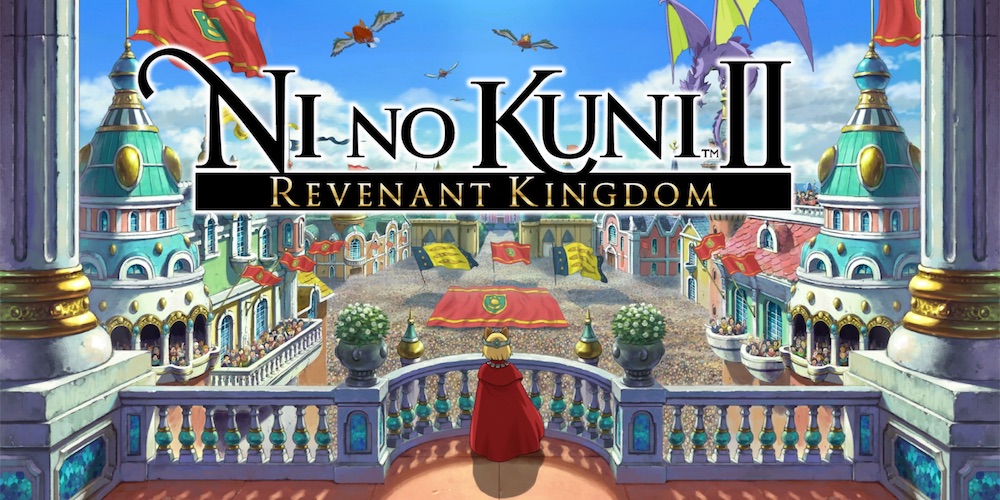
I’ve tried to get into the original Ni No Kuni a few times over the years, but every time I’ve been stopped by the disappointing story and exhausting combat, despite some of the most alluringly unique visuals of the last generation. As such, the announcement from Level-5 of Ni No Kuni II: Revenant Kingdom, another RPG in this universe, hadn’t caught my attention at first, but the trailers showed sufficient promise to justify another attempt at finding the apparent wonder of the world of Ni No Kuni.
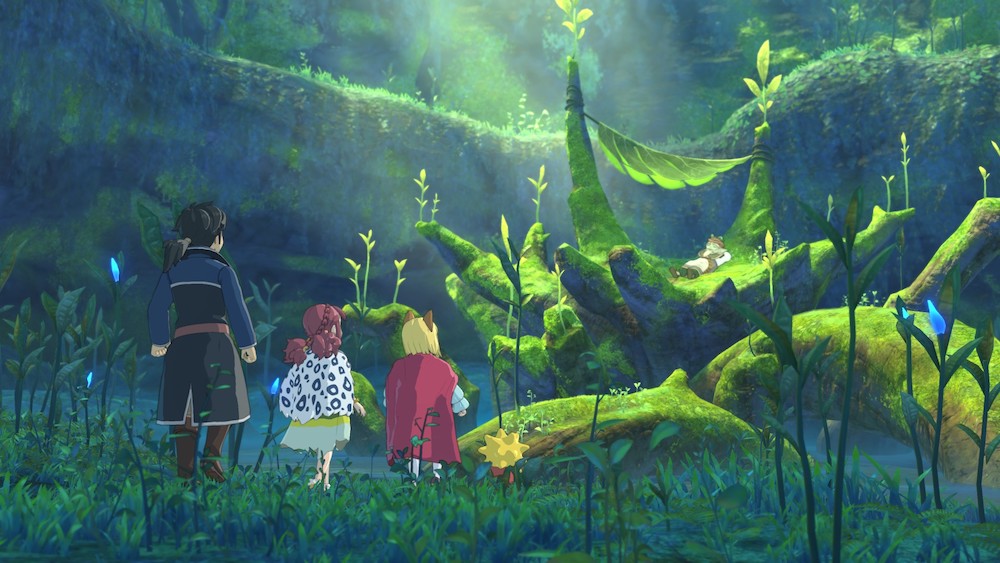
It’s immediately evident that Ni No Kuni II carries on the tradition of its predecessor, in pulling off a visual quality that makes it stand out amongst modern releases. Crisp and colourful across a range of different landscapes, you can’t help but take the time to look around and absorb the sights awaiting you across the world. This is only further enhanced by the unique animation style, inspired by Ghibli although no longer directly involving them, that solidly places the look and feel of this game in a tier of its own.
The combat system is, at least for me, vastly improved from the original: without the “familiars” which muddied combat in the first, success is reliant solely on your own reflexes and timing. Dodging and blocking is responsive, meaning that when I got hit, I knew it was my own fault. Enemies have patterns and visual tells that you’ll pick up on quickly, so you know the perfect time to unleash that massive attack that requires your target to stay still for a good five seconds. Even just using some emergency items mid-fight is refreshingly quick.
This would all be perfect, if it weren’t for a near-fatal flaw in the design: balance. Ultimately, the threat of the opponent is too low for this combat system to really flourish, a problem which will go on to infect near every well-made feature of this game. Where most JRPGs will demand some level of grinding, Ni No Kuni II goes wildly in the other direction, eliminating the need entirely. In my own experience, mid-way through the game, I was ten levels below the “recommended level” and still blasting through enemies with ease.
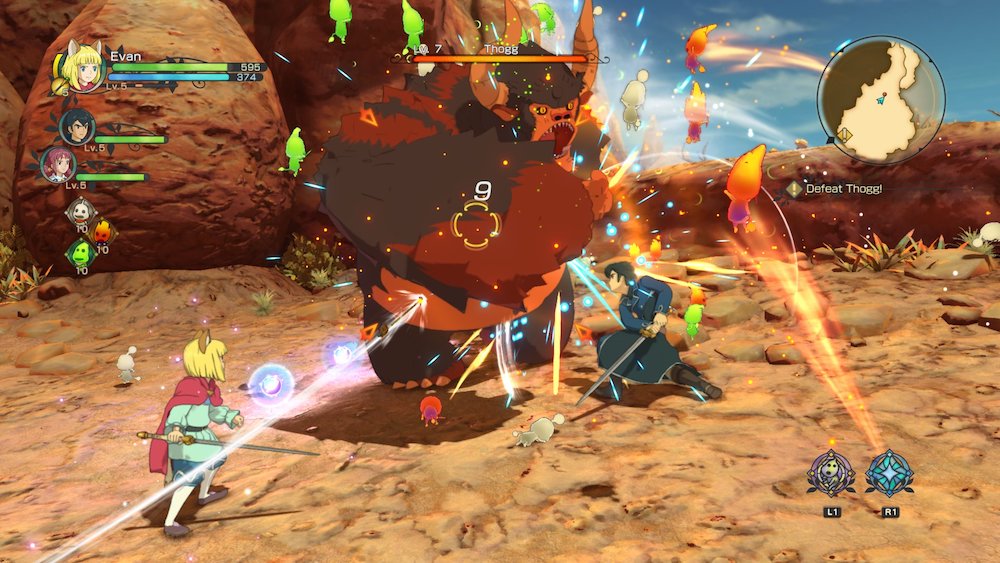
The difficulty infects character progression. Without any substantial threat, I was never excited by a new weapon drop or by gaining a few points to spend on the very unique upgrade system made up of sliders that affect your strengths in different ways, the Tactic Tweaker. Instead, every few hours I’d jump into my menu and re-equip everyone with the weapons with the biggest numbers, not out of need, but just to speed up combat. I’d spend my points in the Tactic Tweaker, move sliders up to higher numbers, but not need to worry about what would be more optimal or relevant to my current opponents.
The difficulty infects also the party composition. As you journey through the story, you’ll meet new party members and find new Higgeldies, small creatures who lend their aid in combat with unique skills and large numbers. But by the time I had a full complement of three party members and four Higgeldies, I never felt a need to change them for any new ones in my remaining time with the game. The new crew didn’t bring anything particularly valuable to the party, and a change in Higgeldies was barely noticeable.
Ultimately, this all could have been improved by some kind of difficulty option. If enemies posed more of a threat, or if the player character was less of a powerhouse, I would have had to have considered my party composition, tried to maximise the effectiveness of my Higgeldies or frequently referred to my Tweaker to ensure I was optimal for the fight. However, Ni No Kuni II leaves this option out, offering only the single level of difficulty to its players.
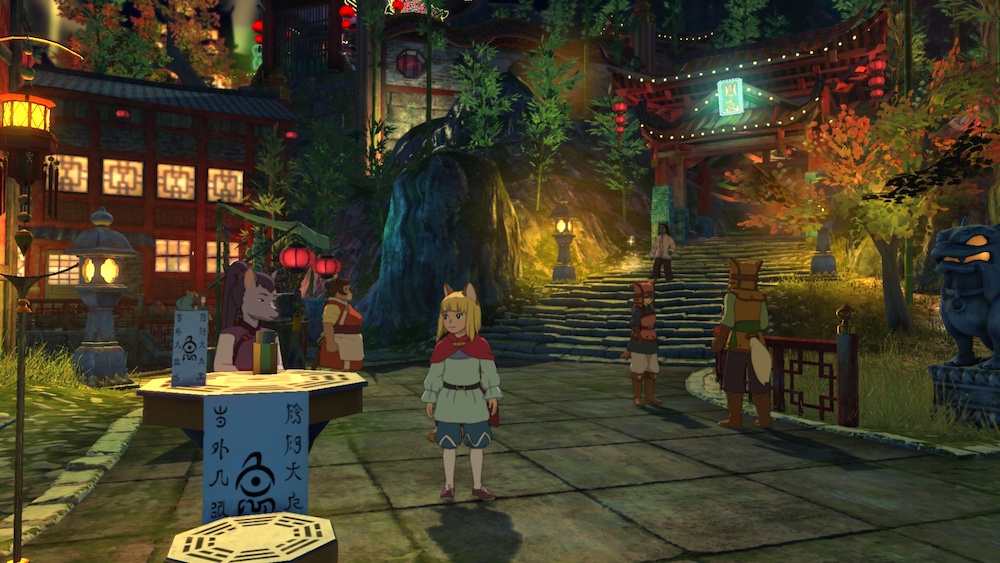
On the flip-side of this sentiment, had I found the game challenging I likely would have enjoyed the combat system exactly as it is. You may have a harder time in combat and thus find more joy in the systems within, in the same way that some fans of Dark Souls were unimpressed with the level of difficulty in Bloodborne while it was spot-on for my own abilities. There’s certainly the potential for fun between the various elements of combat, and I think this is what many people are finding themselves enjoying.
Unfortunately, it’s not just the combat that’s at fault here. There are many distractions from the main progression in the game, but these also fail to engage as much as they needed to. There are segments of top-down army combat, interesting in theory, but in practice you simply place yourself near opponents while your army auto-attacks them to death. Town-building is inflexible and only offers small bonuses to other elements. Side quests are as simple as they come, primarily consisting of fetch quests and kill-that-monster. Further, they bookend these side quests with an absurd excess of dialogue, which could be called elaborate world-building, but I would have preferred more effort went into writing the main story.
Where the visuals excel, and the gameplay lags behind, the story strikes a firm middle-ground. There’s nothing fundamentally wrong with the tale: it’s a very positive adventure, overcoming difficulty to succeed in your destiny and all that. But it fails to distinguish itself in this regard, the entire course of the plot being evident from the very beginning, with only a few twists on the path. There were two distinct moments the tale caught me off-guard, but these were surrounded by usual exploits of any hero-tale. It also fails to make good use of the cast, using your expanding party as little more than additional faces to fill in cutscenes.
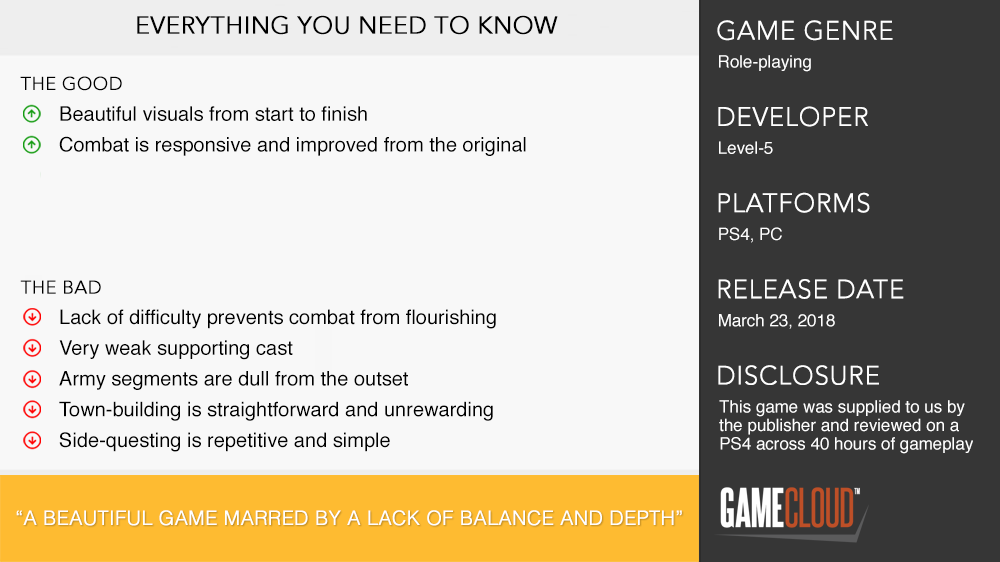
Ni No Kuni II: Revenant Kingdom was a particular disappointment for me. While beautiful and with a combat system that carries significant potential, the game is undermined by a failure to balance the combat for sufficient threat. While this could have been resolved by the simple inclusion of a difficulty setting, the game also features many weak side features, from the town-building to the side quests. Fans of the original aren’t the only ones who may get some enjoyment from returning to the world of Ni No Kuni, but I suspect there will be others like me who will leave unsatisfied for their time spent.











